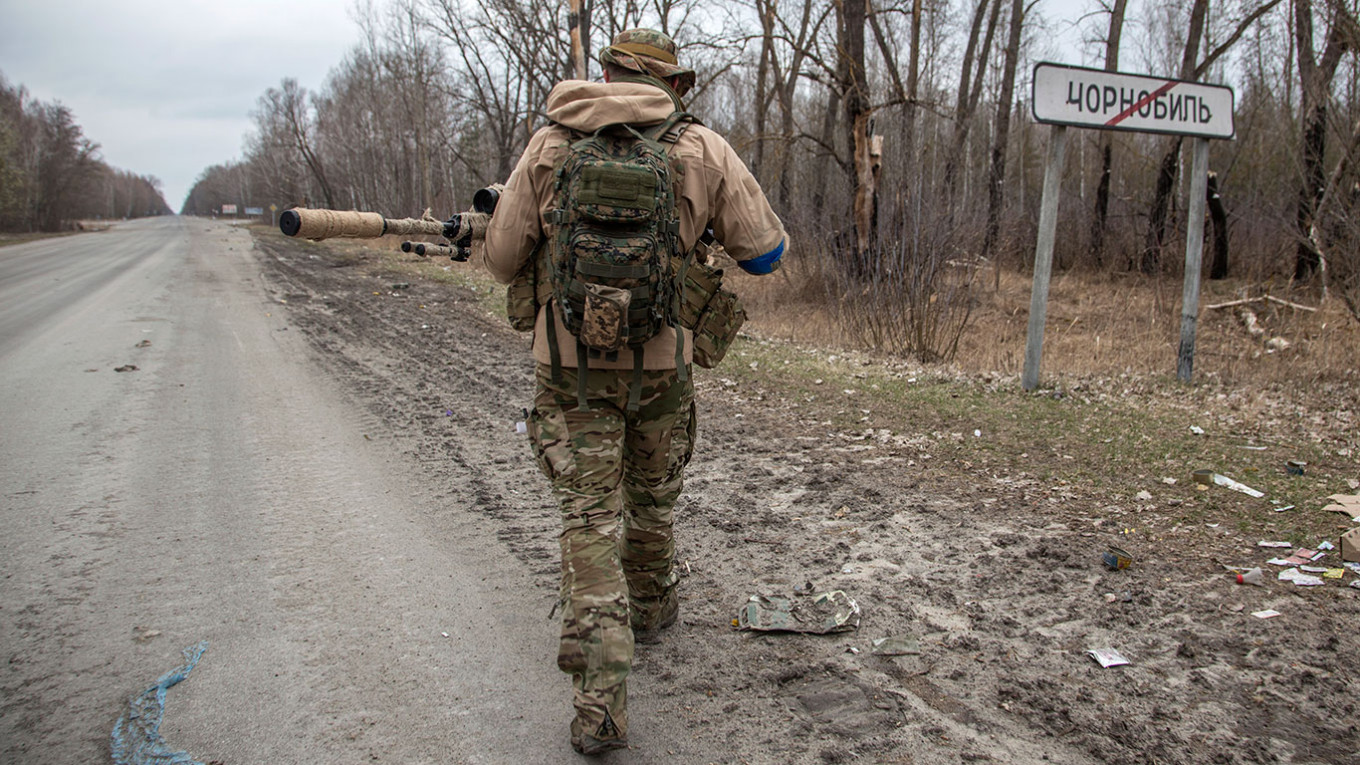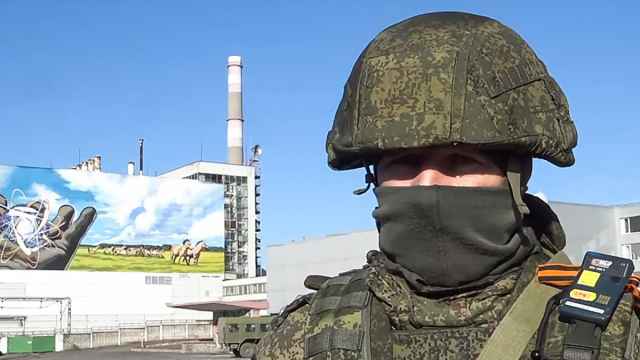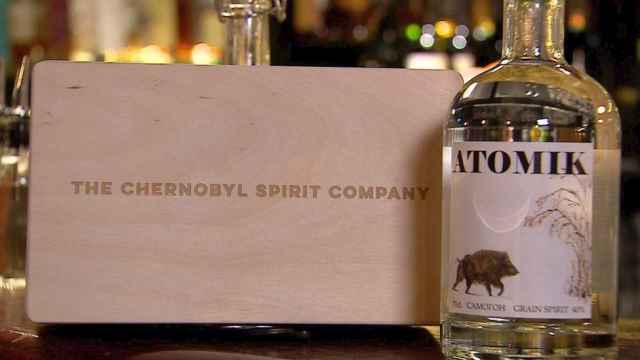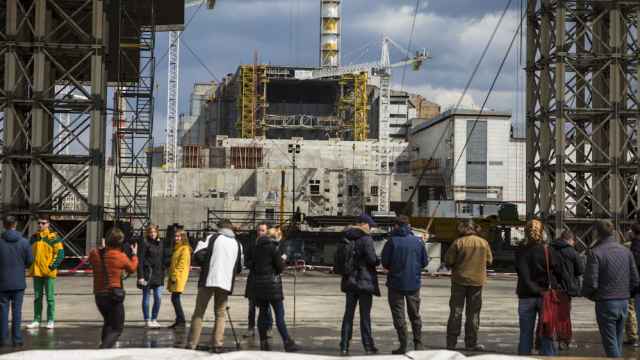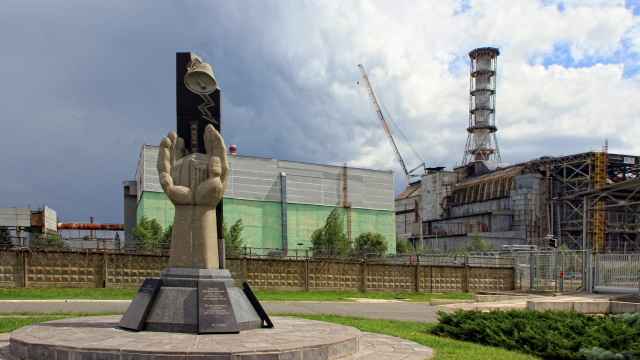Russian soldiers dug trenches in the highly-radioactive soil of the Chernobyl exclusion zone when they controlled the defunct nuclear power plant, a Ukrainian official confirmed to the U.S.-funded Voice of America (VOA) outlet Thursday.
Russian forces captured the Chernobyl plant, the site of the world's worst nuclear disaster, on the first day of Russia's invasion of Ukraine on Feb. 24. They withdrew on March 31 as Russia repositioned its forces away from the Ukrainian capital Kyiv.
Evgen Kramarenko, director of the Ukrainian state agency managing the exclusion zone, sent VOA a series of ground-level photos showing trenches dug in the area after visiting the site himself.
Undated drone footage shared Wednesday by the Ukrainian military purports to show trenches dug in the ground in the Red Forest — the most contaminated area of the Chernobyl exclusion zone. Tank tracks are also visible across the radioactive ground.
In a March 31 statement, Ukraine's state nuclear agency Energoatom said that Russian troops at Chernobyl had been exposed to “significant doses of radiation,” as they were not wearing protective gear while digging. They also claimed that soldiers withdrew from the site in panic at the first signs of radiation sickness.
Ukraine's military later said those soldiers have been hospitalized in the Belarusian city of Gomel, but neither Russia nor Belarus have confirmed this.
The International Atomic Energy Agency has said it is working to verify the reports that Russian soldiers were exposed to high doses of radiation while in the exclusion zone.
While disturbing the soil might increase the radiation exposure of occupying soldiers, "it is not plausible that it would lead to mass acute radiation sickness" given the age of the isotope decay, a nuclear energy expert told Newsweek.
In its March 31 statement, Energoatom said it was unclear what Russian troops were doing in the Red Forest.
The area got its name when dozens of square kilometers of pine trees turned red after absorbing radiation emitted from the 1986 Chernobyl nuclear disaster.
A Message from The Moscow Times:
Dear readers,
We are facing unprecedented challenges. Russia's Prosecutor General's Office has designated The Moscow Times as an "undesirable" organization, criminalizing our work and putting our staff at risk of prosecution. This follows our earlier unjust labeling as a "foreign agent."
These actions are direct attempts to silence independent journalism in Russia. The authorities claim our work "discredits the decisions of the Russian leadership." We see things differently: we strive to provide accurate, unbiased reporting on Russia.
We, the journalists of The Moscow Times, refuse to be silenced. But to continue our work, we need your help.
Your support, no matter how small, makes a world of difference. If you can, please support us monthly starting from just $2. It's quick to set up, and every contribution makes a significant impact.
By supporting The Moscow Times, you're defending open, independent journalism in the face of repression. Thank you for standing with us.
Remind me later.


